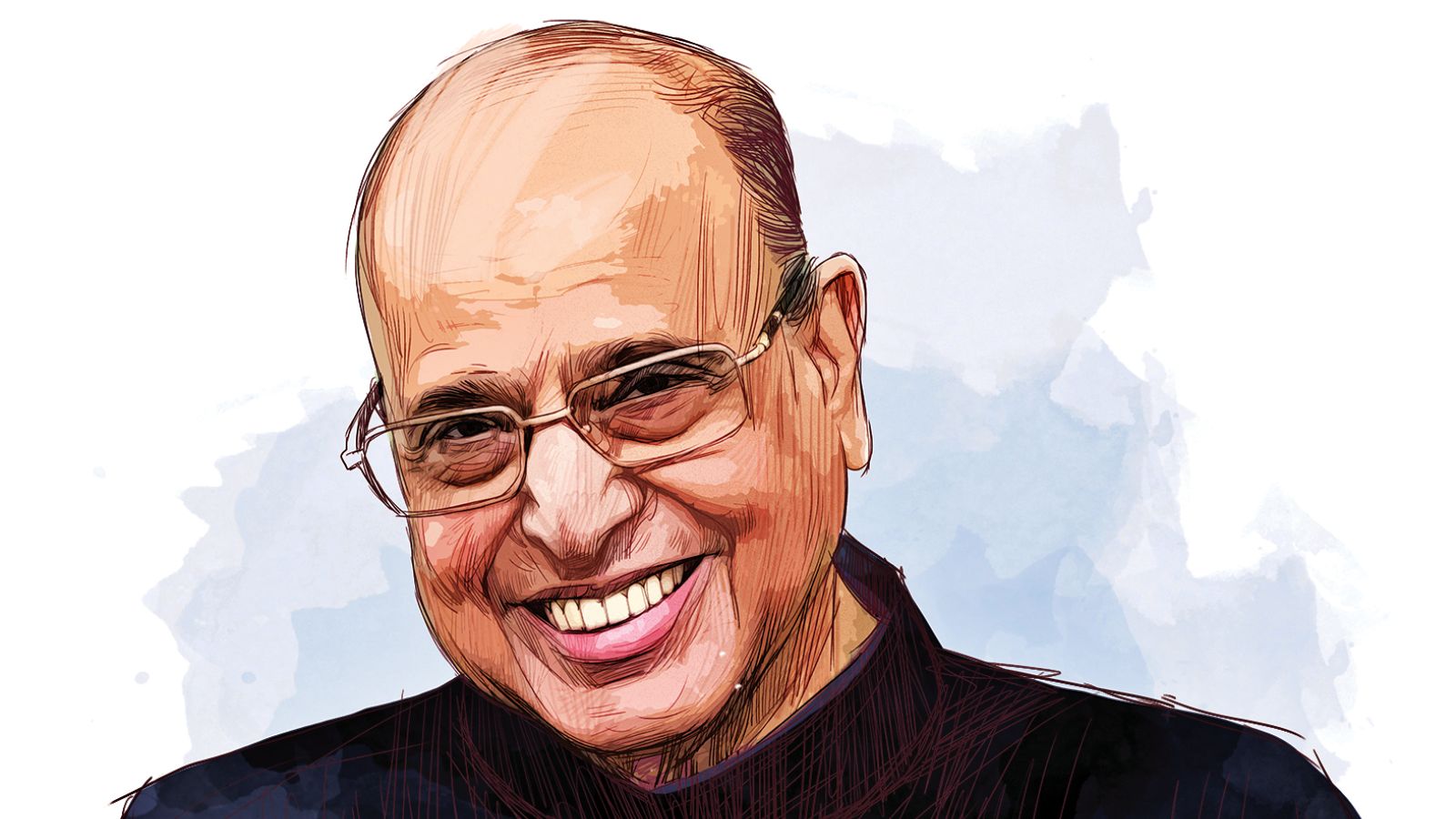Business Brief: The burden of being local

Good morning. Canadians will choose a new government Monday in an election centred on economic security as a trade war with the United States persists. In Treherne, Man., those forces are weighing on one grocer who is fighting to stay afloat as costs rise and local customers drift away. In the news Energy: National Bank of Canada’s chief executive says the next prime minister should overhaul the federal emissions cap and the impact assessment on energy and natural resource projects. Fraud: Top executives at the Ontario Securities Commission say they are seeing a massive surge in online scams and fraud, many of them enabled by emerging technologies such as artificial intelligence and cryptocurrency. Farming: The Quebec pork farmers union is implementing a penalty for all those who are surpassing the set quota for production in the province, a move some say could undermine competition. In the know Trucking giant hits the brakes Canada’s largest trucking company says Donald Trump’s tariffs are upending freight volumes and forcing strategic shifts. The big picture: TFI International scrapped a major U.S. acquisition, pulled back on guidance, and says key industrial clients are freezing activity amid rising uncertainty. TFI International scrapped a major U.S. acquisition, pulled back on guidance, and says key industrial clients are freezing activity amid rising uncertainty. Deals undone: CEO Alain Bédard said TFI recently walked away from a significant U.S. acquisition, citing trade volatility. CEO Alain Bédard said TFI recently walked away from a significant U.S. acquisition, citing trade volatility. Ripple effects: The warning adds to a growing list of companies flagging the impact of the trade war this earnings season. Bédard said pressure could ease in three to six months – but until then, volumes will remain weak. Open this photo in gallery: Jordan Suderman picks up a steak on his way home.Chris Wilson-Smith/The Globe and Mail In focus What we lose when we leave town to shop Alana Turnbull does not have time for this. It’s getting on closing time at Panko’s, the small grocery store she runs in Treherne, Man., and shoppers are trickling in for steaks and side dishes to cap off the day. She’s alone behind the counter, trying to keep things moving, when Charlie, a toy poodle turning one this year, bolts out the front door when an oafish journalist walks in. Turnbull loops around the cash register to help catch him. “We’re both ready to get out that door,” she jokes. Turnbull, 52, operates the meat and deli shop on behalf of her sister and brother-in-law, who run the larger independent store in Portage la Prairie. This one – smaller, personal, proudly local – was opened because residents said they wanted fresh meat, not factory-packaged. “They wanted the good stuff,” she says. “So we thought, why not?” Treherne, population 1,750, is the kind of town where everything used to be closer. Turnbull remembers when the bowling league struggled to find a lane, not a team. These days, she says, the foot traffic that used to keep Panko’s buzzing has thinned. Many residents are cutting back on things like weekly bowling fees and now make the hour-long drive to Winnipeg or head east to Portage, where they can stock up at bulk retailers. “You see the same people who say they want to support local, but then they get everything from Costco,” she says. “And I get it. Everyone’s watching their wallets.” That tension is playing out in rural communities across Canada, where inflation, migration and shifting shopping habits have reshaped the small-town economy. A mix of rising prices and perceived value is driving many consumers to seek relief wherever they can, especially as concerns over job stability and economic uncertainty continue to ripple through the trade-dependent economy. In Treherne – a quiet town with a few shops, a whimsical glass-bottle house and the Second Chance Car Museum, home to lovingly restored vintage vehicles and, for many, a key social hub – Panko’s is one of the last places in the region offering fresh-cut meats. Turnbull takes pride in the store’s offerings, which she says matter to customers looking for quality over convenience. In her role as treasurer of the local chamber of commerce, she says she hears the same concerns from other small businesses: foot traffic is down, costs are up, and even the families who move to the area for cheaper housing often commute elsewhere and shop on the way home. Swatting away sporadic yet polite requests by an annoying journalist to take her picture – “I have a strict no-picture policy,” she patiently repeats – Turnbull says she’s caught in the same current of cost pressures and concerns affecting businesses across rural Canada. “I’m going through it like everyone else.” In addition to running the store, she babysits twice a week and cleans homes on the other days. Saturdays are her only real break, and even then, she tries to squeeze in extra cleaning jobs if she can. “That’s what it takes to make ends meet.” When the lease on the shop comes up next year, it’s unclear whether it will make sense to renew, she says. “The numbers aren’t what we expected.” Open this photo in gallery: Good boy, Charlie.Chris Wilson-Smith/The Globe and Mail Around dinnertime, a customer named Jordan Suderman, 41, a heavy equipment operator who lives in the municipality and works in Winnipeg, stops in for a steak. He chats briefly with Turnbull about their families before heading out with his dinner. “You don’t get this kind of service or personality in the city,” he says. “And by the time you drive to Costco and back, what are you really saving?” As closing time nears, Charlie is scooped up by his “grandpa” Harold – Turnbull’s father – who cradles the poodle with a practised ease. A small moment of relief in a long day. Even then, over the course of about a 45-minute interview at the end of a long shift, the no-picture policy remains in force, even if the journalist had heroically saved the dog from escaping. Turnbull smiles, sighs and finally agrees to a photo taken from afar – out of the spotlight. “Now quit buttercuppin’ me!” She looks up at the clock and wipes down the counter. She wants to be on time for her next job. Charted The great Canadian housing gap Canada’s housing market remains out of reach for many, with high prices and weak construction despite federal efforts. The country needs 3.5 million more homes by 2030 to restore affordability, according to the Canada Mortgage and Housing Corporation, but last year saw just 245,000 starts. A gap in housing is the last of our economic’s team’s “10 themes to watch” in the final hours of the federal election campaign. Bookmarked On our reading list Education: A Quebec Superior Court judge has invalidated a university tuition hike for out-of-province students intended to reduce the number of English speakers. Gadgets: Tariff pressures hit Chinese tech and consumers are bracing for impact. Should you buy a smartphone right now? Distracted: We asked Globe readers to share their favourite YouTube videos. Here are your best picks. Morning update Global markets were muted while investors looked for hope on signs the U.S. and China were prepared to pull back from their trade war. Wall Street futures were in the red and TSX futures pointed lower after North American markets rallied yesterday. Overseas, the pan-European STOXX 600 was up 0.28 per cent in morning trading. Britain’s FTSE 100 was little changed, Germany’s DAX gained 0.6 per cent and France’s CAC 40 advanced 0.38 per cent. In Asia, Japan’s Nikkei closed 1.9 per cent higher, while Hong Kong’s Hang Seng climbed 0.32 per cent. The Canadian dollar traded at 72.02 U.S. cents.

















